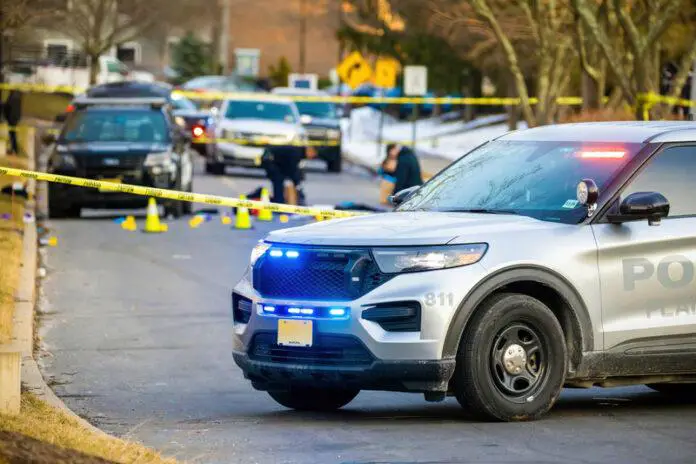In the heart of Chicago, Illinois’ Humboldt Park, a routine traffic stop involving a Black driver spiraled into a devastating encounter, leaving 26-year-old Dexter Reed dead and a city grappling with the implications of police actions.
The incident, captured in detail by body camera footage released by the Civilian Office of Police Accountability (COPA), happened on March 21, 2024, when plainclothes officers in an unmarked vehicle initiated a stop for an alleged seatbelt violation.
On Monday, April 8, COPA and an external specialist affirmed that Dexter Reed, 26, seemingly initiated gunfire in the exchange that led to his death and wounded a Chicago Police officer.
The bodycam footage, revealed on Tuesday, April 9, and encompassing over 30 videos, showed that one of Reed’s bullets hit an officer before the confrontation concluded. Queries have arisen concerning the reasons behind the five tactical officers focusing attention on Reed.
The incident occurred in the Humboldt Park neighborhood’s 3800 block of West Ferdinand Street. Five undercover Chicago Police Department (CPD) tactical unit members stopped Reed in an unmarked vehicle. The footage captured the officers instructing Reed to lower his window and questioning his actions. As Reed began to close the window after initially lowering it, officers urgently instructed him not to do so and to unlock the vehicle doors, rapidly intensifying the situation.
COPA expressed skepticism regarding the initial reason for the stop — a supposed seatbelt violation. A press release from COPA on Tuesday confirmed this account. A copy of a letter obtained by a local media outlet from COPA’s Chief Administrator, Andrea Kersten, to Police Superintendent Larry Snelling later that day questioned the stop’s legitimacy, citing doubts over the officers’ ability to observe the seatbelt violation given their position and the vehicle’s tinted windows. This raises significant concerns regarding the validity of the traffic stop that led to Reed’s encounter.
Kersten’s letter detailed how, after officers demanded Reed lower his windows and unlock his doors, Reed fired towards the passenger side, injuring an officer. Reed remained in his vehicle initially, later colliding with a parked car, exiting his vehicle, and leaving his firearm on the front passenger seat before attempting to flee. Despite Reed’s being unarmed, the officers continued firing, striking Reed multiple times until he fell to the ground. Notably, one officer fired an additional three times at Reed while he lay motionless.
Kersten pointed out that the total of approximately 96 shots fired by the officers, especially the 50 shots by one officer, including the final three shots while Reed was motionless, seriously challenges the proportionality of their use of deadly force.
Mayor Johnson, having met with Reed’s family, expressed his devastation over the loss, mainly as it reflects broader concerns about young Black men’s encounters with police. Legal expert David Harris and former CPD First Deputy Supt. Anthony Riccio weighed in, noting the justified return of fire if Reed shot first, and highlighted critical questions about the stop’s conduct and rationale.
Family members mourning Dexter Reed have expressed doubts about the official narrative of his shooting, as stated by their lawyer, Andrew M. Stroth.
Reed’s sister, Porscha Banks, shared with the media the profound loss her family is experiencing, highlighting Reed’s significant role as a brother, son, and uncle. The family, highlighting Reed’s aspirations and basketball talent, calls for a thorough investigation into the incident. They argue that the shooting was illegal, pointing out that the officers, who were in plain clothes, failed to identify themselves as police.
The death has been ruled a homicide by the medical examiner, who noted Reed died from multiple gunshot injuries. The investigation into the shooting has become a confluence of mourning, anger, and calls for systemic change. As officials vow transparency and the Reed family seeks answers, the community is left to reckon with the repercussions of those 41 seconds—a brief span that has irrevocably altered lives and fueled a renewed scrutiny of police practices.
This story unfolds against a backdrop of national conversations on law enforcement’s use of force, with Chicago’s own history of such incidents under a microscope. As COPA and the Cook County State’s Attorney’s Office delve into the details of that March evening, the questions raised extend far beyond the specifics of the case, touching on the broader dynamics of policing, community trust, and the search for justice in the wake of violence.


